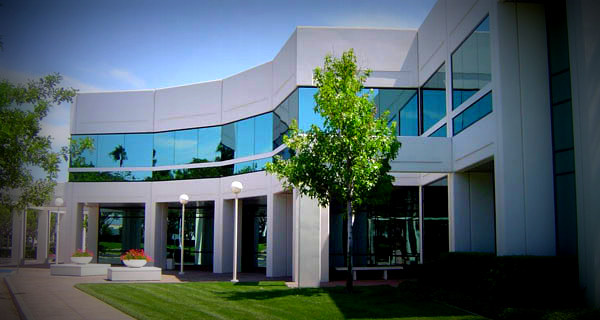Commercial Property
How To Analyze A Commercial Lease – Expert Guide For Smart Investors

How to analyze a commercial lease easily. Learn the key differences between Triple Net and Gross leases with expert tips to avoid costly mistakes.
To analyze a commercial lease, review rent structure, operating expenses, and maintenance responsibilities. Compare Triple Net (NNN) vs. Gross leases to understand who pays taxes, insurance, and maintenance before signing any agreement.
How To Analyze A Commercial Lease (Triple Net vs. Gross)
Ever looked at a commercial lease and felt like you were reading a foreign language? You’re not alone. Many business owners and investors struggle to understand what’s really hiding inside those lengthy lease documents.
Here’s the truth — understanding your lease type can make or break your investment or business profit. The difference between a Triple Net (NNN) and a Gross lease can mean thousands of dollars in extra costs each year.
Let’s break it all down in plain English — no legal jargon, no fluff, just what you actually need to know.
Understanding The Purpose Of A Commercial Lease
A commercial lease is more than just a rent agreement — it’s the foundation of your business location. It defines how costs, risks, and responsibilities are shared between landlord and tenant.
The goal? To establish clear terms that protect both parties while outlining who pays for what — rent, maintenance, insurance, and taxes.
Think of it as the “rulebook” for your property relationship. Whether you’re renting a retail space, warehouse, or office, the details matter more than the price tag.
What Makes A Commercial Lease Different From A Residential One ➡️
Unlike residential leases, commercial leases are not standardized. Every deal is negotiable — which means every line counts.
Here’s how they differ:
- Negotiation Power: Commercial leases are often tailored to fit business needs.
- Longer Terms: Usually 3–10 years, not month-to-month.
- Higher Stakes: Expenses and responsibilities can shift dramatically depending on the lease type.
In short — there’s no one-size-fits-all template. That’s why learning to analyze one is key before you sign.
Triple Net (NNN) Lease Explained
A Triple Net (NNN) lease is one where the tenant pays rent plus property taxes, insurance, and maintenance.
So besides your base rent, you’ll also pay the building’s operating costs.
This setup benefits landlords because they pass almost all expenses to tenants. For tenants, it offers transparency but less predictability since costs fluctuate.
Quick Example:
If your rent is $5,000 per month and your share of property taxes and maintenance adds $1,000, your total payment is $6,000.
Gross Lease Explained
A Gross lease (sometimes called “Full-Service”) includes all costs in one payment.
That means the landlord pays property taxes, insurance, and maintenance — while the tenant just pays a fixed rent.
This is great for budgeting because you know your exact monthly expense. However, the landlord usually charges a higher rent to cover those hidden costs.
In simple terms:
- Gross lease = predictable costs ✅
- Triple Net lease = more control but variable costs ⚖️
Comparing Triple Net vs. Gross Lease: Key Differences
| Aspect | Triple Net (NNN) Lease | Gross Lease |
| Rent Amount | Lower base rent | Higher base rent |
| Expenses | Paid by tenant | Paid by landlord |
| Budget Predictability | Variable | Fixed |
| Maintenance | Tenant handles | Landlord handles |
| Best For | Long-term, stable tenants | Short-term or new businesses |
How To Read A Commercial Lease Like A Pro
Most leases are written in dense legal language, but here’s how to break it down:
- Start with the summary page — it lists rent, square footage, and key dates.
- Highlight cost sections — look for taxes, insurance, and common area maintenance (CAM).
- Check renewal and termination clauses — they can hide costly traps.
- Review maintenance duties — who fixes the roof, HVAC, and plumbing?
Always remember: The fine print controls your bottom line.
Analyzing Rent Structure And Escalations
Rent isn’t just one number — it can change over time.
Most commercial leases include escalation clauses, which increase rent annually or based on inflation.
Common methods include:
- Fixed Increase: e.g., 3% every year.
- CPI Adjustment: Rent tied to the Consumer Price Index.
- Step-Up Rent: Rent jumps at set intervals (e.g., every 3 years).
Understanding this protects you from surprise hikes that can squeeze your cash flow.
CAM (Common Area Maintenance) Charges Explained
In Triple Net leases, CAM fees are one of the biggest expenses. They cover shared spaces like lobbies, parking lots, and landscaping.
But here’s the trick: CAM charges are often loosely defined. Always ask for a CAM breakdown before signing.
Typical CAM items include:
- Landscaping and snow removal
- Security and lighting
- Janitorial services
- Repairs and maintenance
Knowing what’s included helps you spot padded or hidden charges.
Understanding Operating Expenses In Detail
Operating expenses can make or break your total lease cost.
In NNN leases, you might share costs for insurance, utilities, or taxes even if your unit doesn’t directly use them.
Ask for:
- Last year’s expense report
- Future projections for taxes and utilities
- Clear definitions of what counts as “operating”
A landlord who won’t provide details might be hiding higher costs.
Evaluating Maintenance Responsibilities
Maintenance is often a gray area — so clarify everything upfront.
In Triple Net leases, you might handle all interior repairs and even HVAC systems. In Gross leases, landlords usually handle everything except interior cleaning.
Always know:
- Who pays for major repairs
- What counts as “structural”
- Response time for maintenance requests
This can prevent disputes and unexpected bills later.
How To Negotiate A Fair Lease ✍️
Yes, commercial leases are negotiable — even if the landlord says otherwise.
Here are smart tips to save money:
- Ask for expense caps on taxes or maintenance.
- Negotiate a rent-free build-out period while setting up your space.
- Request audit rights to verify CAM charges.
- Clarify renewal options early to lock in better rates.
Pro Tip: Always negotiate with data — bring comps of similar local properties.
Analyzing Lease Term And Renewal Options ⏳
A long lease can bring stability but reduce flexibility. Shorter terms offer agility but less security.
Look for renewal options that specify:
- Renewal notice period
- How new rent will be calculated
- Whether improvements carry over
Your goal is to balance cost predictability with business flexibility.
Understanding Personal Guarantees And Liabilities ⚠️
Many landlords require a personal guarantee — meaning you’re personally responsible if your business can’t pay rent.
Before agreeing, try to negotiate:
- A limited guarantee period (e.g., first 12 months only)
- Good Guy Clause allowing exit without full liability if you vacate responsibly
Never sign a guarantee without understanding the personal financial risk.
Analyzing Sublease And Assignment Clauses
These clauses determine whether you can rent the space to another tenant later.
A flexible sublease clause can protect you if your business grows or relocates.
Check for:
- Landlord approval requirements
- Profit-sharing terms
- Any additional fees
Having this flexibility gives you more control over your lease commitment.
Calculating The True Cost Of Occupancy
Your total lease cost isn’t just rent — it’s rent plus all add-ons.
| Expense Category | Triple Net (NNN) | Gross Lease |
| Base Rent | $4,000 | $5,500 |
| Taxes/Insurance | $800 | Included |
| Maintenance | $600 | Included |
| Utilities | $300 | Included |
| Total Monthly Cost | $5,700 | $5,500 |
Always calculate the “effective rent” — your total monthly payment including all pass-through expenses.
When To Choose A Triple Net Lease
Choose a Triple Net lease if:
- You want more control over property expenses.
- You’re a long-term tenant planning to stay 5+ years.
- You prefer transparency in cost allocation.
NNN leases work well for stable businesses that can handle variable expenses and prefer lower base rent.
When To Choose A Gross Lease
Choose a Gross lease if:
- You’re launching a new business and need predictable costs.
- You prefer the landlord to handle maintenance and taxes.
- You want simple, all-inclusive rent payments.
Gross leases are ideal for startups and short-term tenants who prioritize stability and convenience.
Common Red Flags To Watch Out For
Keep an eye out for these warning signs before signing:
- Vague CAM or “administrative fee” clauses
- No cap on annual expense increases
- Landlord can reassign costs arbitrarily
- Personal guarantee with no expiration
- No clear maintenance responsibility
If you see these, pause and consult a real estate attorney before moving forward.
Final Comparison: Triple Net vs. Gross Lease Snapshot
| Feature | Triple Net (NNN) | Gross Lease |
| Control Over Expenses | High | Low |
| Budget Predictability | Low | High |
| Maintenance Duties | Tenant | Landlord |
| Rent Cost | Lower | Higher |
| Best For | Experienced tenants | New tenants/startups |
Conclusion: Know What You’re Signing Before You Commit ✅
Analyzing a commercial lease isn’t just about comparing numbers — it’s about understanding who pays for what and how that impacts your bottom line.
A Triple Net lease gives you more control but adds financial responsibility. A Gross lease simplifies budgeting but limits flexibility.
Before you sign, slow down, review every clause, and calculate your total costs. The more informed you are, the better your deal will be — and the fewer surprises you’ll face later.
FAQs
- What’s the main difference between Triple Net and Gross leases?
A Triple Net lease makes the tenant pay taxes, insurance, and maintenance in addition to rent. A Gross lease includes those costs in one fixed payment. - How do I calculate total lease costs?
Add your base rent plus all additional charges like taxes, insurance, and maintenance. This gives you your true “effective rent.” - Can I negotiate a commercial lease?
Yes. You can negotiate rent, expense caps, renewal terms, and even personal guarantees. Always review with a broker or attorney. - Which lease type is better for small businesses?
A Gross lease is usually better for small or new businesses because it offers predictable, all-inclusive monthly costs. - What are common hidden fees in commercial leases?
Watch for vague CAM fees, administrative costs, and uncapped maintenance charges that can raise your expenses unexpectedly.
-

 Real Estate2 weeks ago
Real Estate2 weeks agoCommercial Real Estate: The Ultimate Guide To Smart Property Success
-

 Real Estate1 week ago
Real Estate1 week agoReal Estate Agent: Expert Guide To Buying & Selling Homes Easily
-

 Real Estate5 days ago
Real Estate5 days agoReal Estate License – Your Complete Guide To Starting Strong Today
-

 Real Estate6 hours ago
Real Estate6 hours agoHow To Become A Real Estate Agent – Easy Step-by-Step Guide For Success



